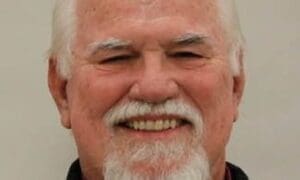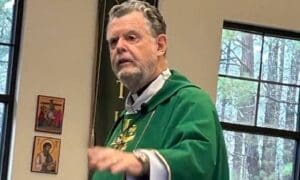Answers to your questions about life, religion and the Bible
Pastors get some of the most interesting questions from people they meet and people in their congregations. Here are a few that I have gotten over the years and recently via email for this column.
Dear Father Paul: Why do some churches practice infant baptism while others do not? — Eric
Dear Eric: Those that do not practice infant baptism (many Protestant churches) believe that baptism is what they call “an ordinance,” or an observance that is required of all believers soon after they make a decision to receive Christ as Lord and Savior. Baptism, to these believers, is largely a symbolic act by which the new believer follows Jesus’ example (Jesus was baptized as an adult…Mark 1:9-11). By going into the water of baptism, as did Jesus, the new believer is identifying with Jesus and is for himself symbolizing Jesus’ death, burial and resurrection. Since the person must understand and affirm the symbolism of what is happening, baptism is only open to older children and adults. There are other aspects to baptism under this belief, but space does not permit a lengthy discussion here.
Those that do practice infant baptism, on the other hand, believe that baptism is what is called a “sacrament.” In a sacrament, God takes something common, (in baptism the “common” thing is water), and God changes it and uses it to do something spiritual … something holy and sacred. In other words, God acts … something “happens” to the person being baptized. God’s grace is poured out on him or her, no matter their age. So to these believers, baptism is more than a symbolic act. To sacramental believers, at baptism a person, infant or adult, male or female, has his “heart circumcised” (spiritually marked or branded) as a member of God’s own family.
Later, at the proper age, he/she will decide for himself whether or not to follow Christ. Scripture for this belief is found in Romans 2:28-29 and Colossians 2:9-12.
Under both scripture and the teachings of the church, baptism is required. It is not optional.
Dear Father Paul: How and when did we get today’s Bible? — Nathan.
Dear Nathan: I am assuming you mean, how did we get which books belong in the Bible?
Christians believe that the Bible, the 39 books of the Old Testament and the 27 books of the New Testament, have God as their author. Not necessarily that he sat down, took pen and paper and himself wrote the Bible, but that he “inspired” the authors to write the Bible by the leading and inspiration of his Holy Spirit.
The problem was that in the early days of the church there were lots of letters, narratives and manuscripts that claimed to be “inspired,” dozens actually. The early leaders of the faith (the bishops … successors to the apostles) had to ask themselves, which of these are in fact inspired, “God breathed,” and which are not, and who and how can we decide?
These men of God, after much prayer, and inspired by the Holy Spirit, decided that major decisions for the young church … like which books should be in the Bible, could only be made by all of the bishops meeting in council as had been done in Acts 15.
The Muratorian Canon in A.D. 170 had named all of the present Old Testament books, as well as all of today’s New Testament books, except Hebrews, James and 3rd John. Later, the Council of Laodicea in A.D. 363 added these three books plus the Apocrypha. The books of the Apocrypha were deemed “sacred, not inspired” texts by the Council.
The Councils of Hippo in A.D. 393 and Carthage in A.D. 397 affirmed the Council of Laodicea and the 66 books of the Old and New Testaments were deemed inspired and authoritative giving us today’s Bible.
Do you have a question? Email me at [email protected].
Father Paul Massey is pastor of Church of the Holy Cross Charismatic Episcopal Church in Fayetteville, Georgia … ”the Ancient, Historic Church for Today’s Generation.” Worship with us this Sunday. Information, directions and service times are found at www.holycrosschurch.wordpress.com











Leave a Comment
You must be logged in to post a comment.